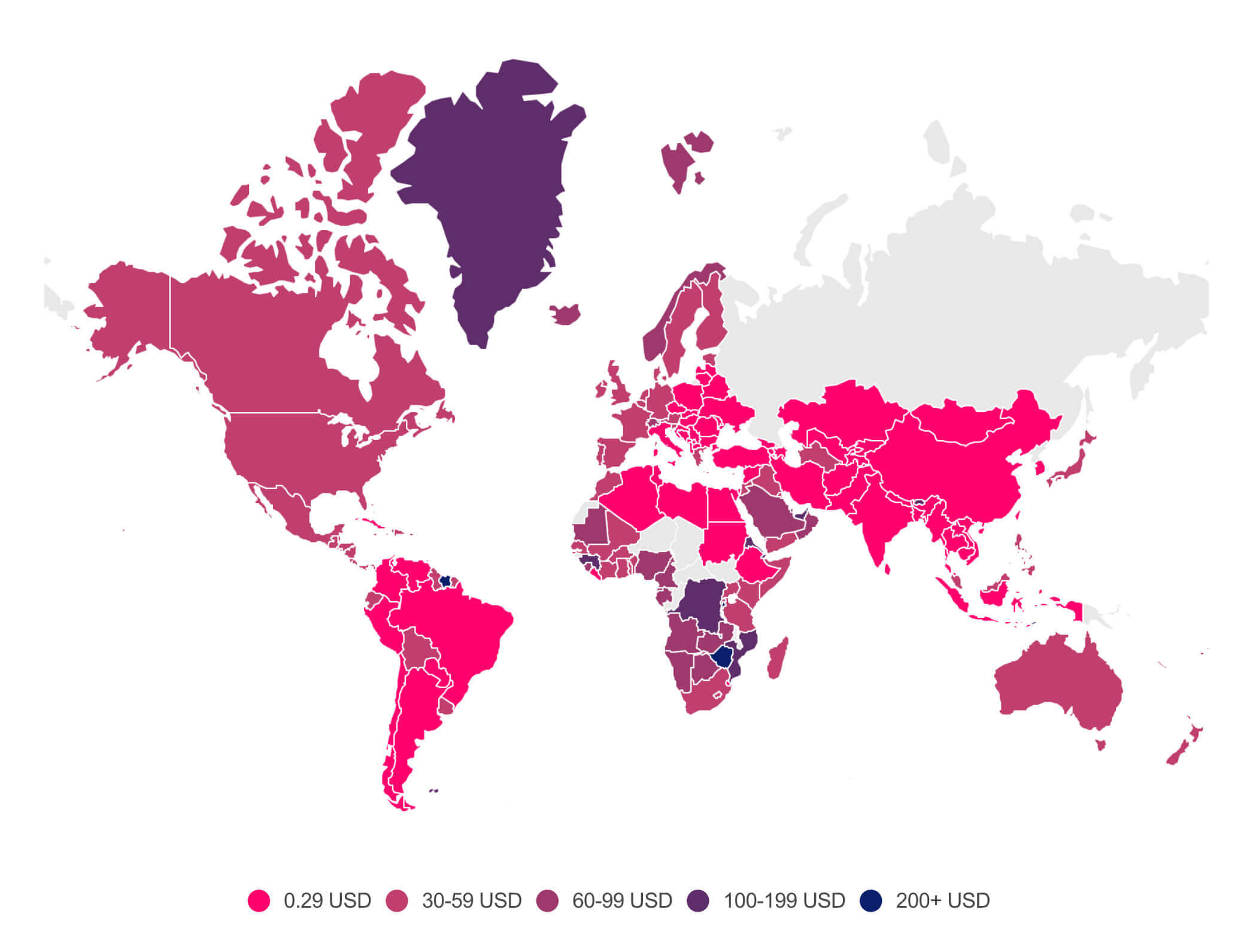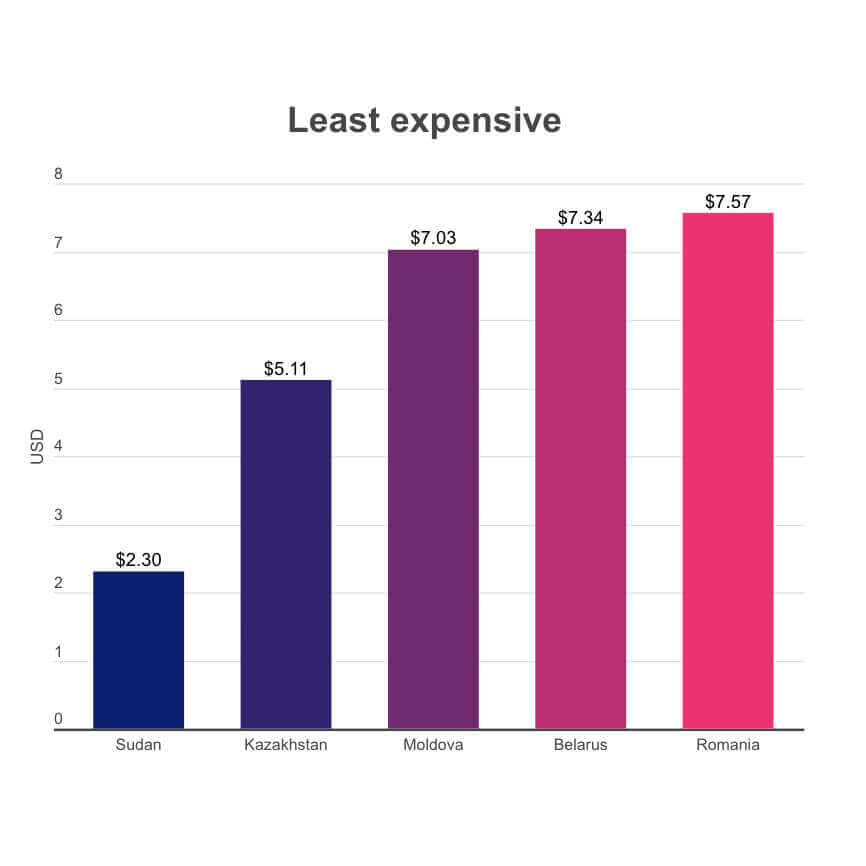Global broadband pricing in 219 countries 2023: Winners and losers
 Dan Howdle • March 14th, 2023
Dan Howdle • March 14th, 2023

Cable.co.uk today launched its sixth annual study of the average price of broadband in 219 countries. As one might expect in the current global economy, broadly, prices have gone up. But that's not the case universally. You can see the data in detail yourself on the study's landing page. Here, though, we'd like to talk about a few of the highlights.
We try to ensure the study becomes more expansive year on year. That's not always possible because various countries drop in and out for various reasons. For example, The Russian Federation has dropped out due to new-found impenetrability of the pricing offered by its providers. This brings the total countries covered from 220 last year to 219 this year. We did however up the number of packages measured by several hundred to a total of 3,703.

Sudan is now offers the cheapest broadband packages in the world

This is where we have to bear in mind that this annual study gathers and collates data on pricing, not on affordability, or on network quality or the speeds offered. Because although Sudan does indeed offer the cheapest packages in the world on average, moving from second-cheapest last year to the top spot in 2023, the average Sudanese person should expect their internet to be fast, reliable or even particularly affordable by the standards of the average wage in the country.
Given that our study's remit is entirely fixed-line broadband, it also deos not reflect that most Sudanese who have access to the internet do so via their phones. So cheapest, yes, but with those caveats.
According to budde.com, an independent producer of telecoms research and statistics, "The country’s poor fixed-line infrastructure has helped the development of mobile broadband services. Sudatel, Cameroon’s Camtel, and Chad-based SudaChad Telecom’s planned investment, the WE-Africa-NA terrestrial fibre link, will connect from Port-Sudan then on to Kribi in Cameroon, passing through Chad. The new build aims to respond to rising data demand in all three countries, particularly as usage has been accelerated since the onset of the Covid-19 pandemic with digital and data services gaining traction."
Western Europe doesn't fare well overall
You might expect that Western Europe, what with its advanced infrastructure and thriving telecoms markets, would be competing, at least in some small way, towards the top of the table for cheapest fixed-line broadband. But actually nothing could be further from the truth. Not a single country in the Wester Europe regions made it into the top-50 cheapest, with Malta coming in cheapest in the region, in 59th place, with an average package price of USD 27.41.
The UK's rather lacklustre overall placement of 76th is actually a big improvement since last year and demonstrates that, at least on the day of the snapshot, UK broadband prices have not substantially increased since this time in 2022.
CIS remains the cheapest region in the world for broadband
CIS or Commonwealth of Independent States, sometimes called 'former USSR' – a term we have to be very careful with in the current global climate – offers on average the cheapest broadband in the world regionally. This region consists of 11 measured countries that include Kazakhstan, Moldova, Belarus, Georgia and others.
Surprisingly, North America is the world's most expensive region
Following on from the surprising expensiveness of broadband in Western Europe we have North America – the most expensive global region. Again, many are likely to find this surprising considering the main bulk of the region is made up of two of the world's most highly developed nations: The USA and Canada.
And while broadband in both USA and Canada is indeed expensive (with the USA coming in 146th in the world, and Canada 136th), regionally the expense is amplified by the inclusion of Bermuda and Greenland, both of which are near the very bottom of the table, in the main part simply because they are both geographically troublesome locations to roll out fixed-line broadband.
Final thoughts
It's clear from this year's study that broadband around the world is becoming more expensive. However, given the extremes of global inflation across the last 12 months, this effect is actually quite negligible. Added to that, broadband is getting quicker, and in most countries where broadband is prohibitively expensive, steps continue to be made – albeit slowly in many cases – toward making broadband affordable for all.
